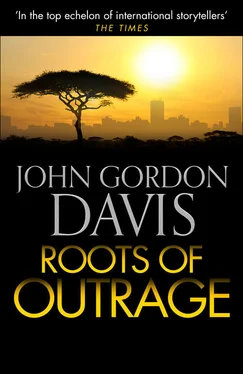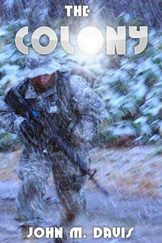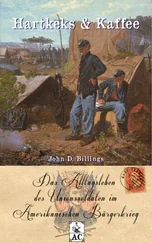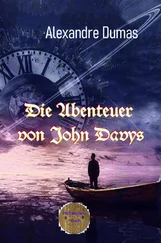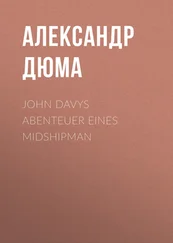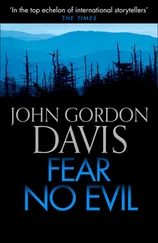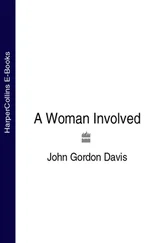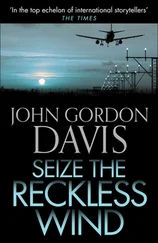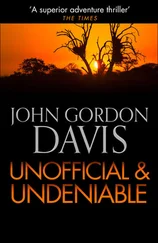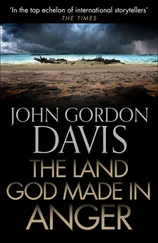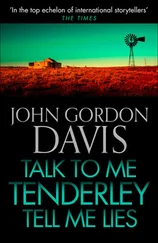‘Yes, but we’re surrounded to the north by hostile territory – the Portuguese in Mozambique and Angola, the British in Rhodesia – so it’s very difficult for us to get supplies through.’
‘Castro,’ Mahoney said, ‘had no friendly neighbouring territories either. Cuba is surrounded by sea.’
‘Exactly. So he could get his supplies by sea –’
‘So is South Africa surrounded by sea – almost three thousand miles of coastline.’
‘But South Africa’s got a powerful navy –’
‘Bullshit, we’ve got a very small navy. Castro was faced by the United States Navy. Even a United States naval base on the island, which is there to this very day.’
She cried, ‘So what’s your point?’
‘The point, darling, is that Castro and eighty men – only eighty – landed off the yacht Granma on the coast of Cuba and ran straight into gunfire. Only three years later Castro marched triumphant into Havana, despite all the odds against him.’
‘So?’
‘And Mao Tse-tung didn’t have any friendly territories to supply him either. On the contrary he had the whole might of America and Chiang Kai-shek dropping bombs on him –
‘ So – what’s the point?’
He only knew that he did not accept that South Africa and its borders were unsuitable terrain for guerrilla warfare. The point was that although he rejected communism he admired Castro as a soldier. He admired Mao Tse-tung as a soldier. They had tremendous odds against them but they waged courageous and efficient guerrilla wars. Efficient – that was the point. The ANC and their MK were inefficient. The ANC had been in existence fifty years, apartheid had been in existence for fourteen years and all the ANC had managed was bombs. They had not liberated one square foot of territory. Bombs were bad soldiering. Oh, he admired Mandela’s courage, but as a soldier he was no Castro, no Mao Tse-tung. He was pissing into the wind with his bombs – it would all come back at him. Soon he would be caught and hanged and then the police would run rings around MK; the Spear of the Nation would flap around like a chicken without its head.
‘The point is bombs won’t get you anywhere in this hard-arsed, well-armed, heavily policed Afrikaner country. Bombs are no good unless they’re part of a well-fought guerrilla war, where they’re aimed at military installations and industry – otherwise they’re counter-productive, especially when they start killing people. Nobody respects a bomber, they hate him. Unless they wage a proper guerrilla war the ANC will lose international sympathy, and that is all they’ve got going for them. And bombs will only make the government more repressive.’
‘Could they be more repressive?’
‘Sure. How about concentration camps of suspects, like the British did during the Boer War?’ He snorted. ‘We’ve only begun to see apartheid legislation. If they decide to get really tough that’ll be bad news for you and me.’
‘So we should just give up, should we?’ she countered aggressively. ‘Mandela and MK are wasting their time?’
‘Mandela should be devoting his considerable brainpower and courage to organizing a guerrilla army, not fucking about with home-made bombs and sticking his head in a noose. It’s a quixotic waste of good manpower. And suicidal. If bombs are all MK’s good for, forget about them. And forget about the ANC, because what good is a liberation movement without an army? It’s a paper tiger.’
Her eyes flashed. ‘Bullshit! They’ll do it with urban guerrilla warfare!’
‘They’ll fail. They’ll shoot themselves in the foot.’
She glared at him. ‘You think the ANC are useless, don’t you? You don’t think they can run the country –’
‘I’m not saying that –’
But, ah yes, he was saying something like that. Patti wanted one-man-one-vote tomorrow, but look at the Congo – were those blacks capable of running the country? Look at Ghana, look at Uganda … Of course Mahoney wanted apartheid abolished tomorrow, of course he wanted a happy multi-racial South Africa. But the only way democracy would come to Africa was gradually, with political education. One-man-one-vote tomorrow would create chaos.
‘But I don’t believe there’ll be chaos,’ Patti said; ‘I believe the experienced ANC leadership will prevent the type of chaos that’s happening in the Congo. But if chaos is what it takes to get rid of apartheid, so be it. If we’ve got to blow the whole government to kingdom come to achieve a just society, so be it.’
He smiled. No use arguing with her. ‘You really are a communist, aren’t you? Tear down the whole structure, rebuild on the ruins?’
‘I’m a socialist, darling. Not a Marxist. And so are you, in your secret racist heart.’
‘Me a socialist?’
‘Of a sort. I couldn’t love you if you weren’t just. You also think there’s got to be a redistribution of wealth in this country. A redistribution of land , for a start. Housing – why should the vast majority of urban blacks live in hovels while the whites live in nice suburbs? The state must provide decent housing. The mines, and big industry – why should the blacks, who create the wealth, receive miserable wages while the fat white shareholders get the big profits? Obviously, the commanding heights of commerce must be nationalized, like the coal and steel industry in Britain.’ She spread her hands. ‘That hardly makes me a communist, any more than Harold Wilson … ’ She sat up straight. ‘And now can we please stop talking about bloody politics? Weekends are supposed to be for us …’
But you couldn’t avoid politics in South Africa because you lived with it. And with those bombs. And with the government’s new laws to deal with it all. That year the Defence Act was beefed up to give the army wider powers to suppress internal disorder, the period of military training was extended and a police reserve was created. Police powers of interrogation, control of suspects and witnesses were drastically increased: now they were empowered to detain a suspect in solitary confinement, without access to a lawyer and without a criminal charge being laid, for successive periods of twelve days. The state already had the power to ban and banish people and organizations, but now new legislation gave them the power to condemn people to house-arrest without a trial. The Prisons Act forbade the press from reporting on conditions in jails, and new legislation empowered the state to hold suspects incommunicado, which made it impossible for a prisoner to prove he had suffered third-degree treatment. Magistrates holding inquests were frequently hearing how suspects were ‘having accidents’, slipping on soap in the showers, falling down staircases, ‘committing suicide’ by throwing themselves out of high windows, hanging themselves, being ‘shot in self-defence’ when attacking their interrogators, ‘shot escaping custody’: the new laws made it impossible to refute this new tendency of suspects to injure and kill themselves. The editor of Drum gave Mahoney the task of reporting on all such inquests. ‘Build up a case file against the bastards.’
‘God,’ Mahoney said to Patti, ‘it’s getting like Orwell’s 1984 .’
‘Do you still,’ Patti said, ‘consider that Mandela shouldn’t plant bombs?’
Oh Jesus, he didn’t know anymore. He would like to see the government blown to smithereens too.
‘God help Mandela when his luck runs out …’
It was not long before Nelson Mandela’s luck did run out.
He was disguised as a chauffeur, driving a shiny Jaguar through the rolling green countryside of Natal. It was a tertiary road, only used by country folk, a needle-in-a-haystack road, which made it impossible that the police were so lucky to just pick the right one. Their ambush was massive. Mandela drove straight into it: within moments his car was surrounded by firearms.
Читать дальше
